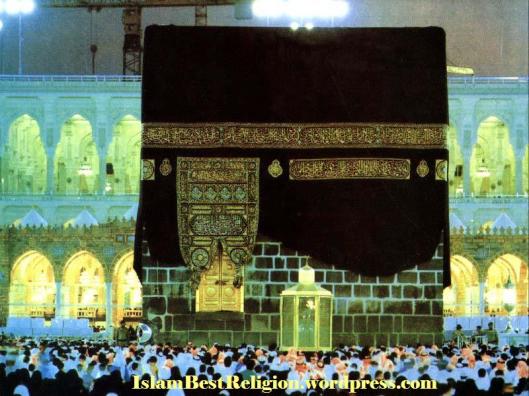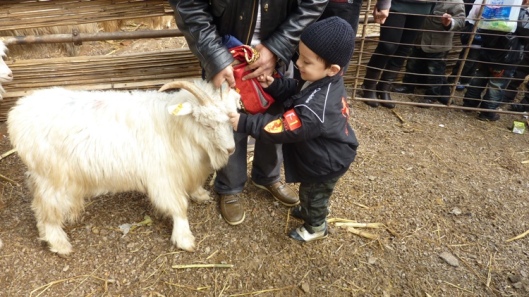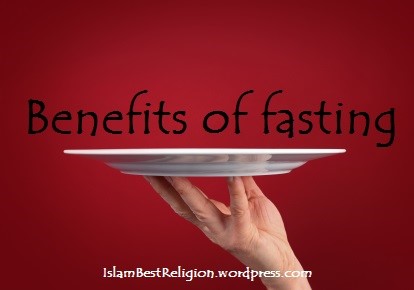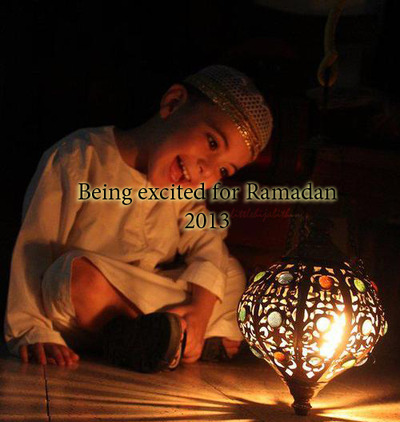‘Udhiya’ is an Arabic term which means ‘sacrificing an animal’, and ‘Qurbani’ is an Urdu and Persian word derived from the Arabic word ‘Qurban’ which literally means an act performed to seek Allah’s pleasure. It is technically used for the sacrifice of an animal slaughtered for the sake of Allah.
Virtues of Udhiya (qurbani)
Allah Most High Says:
‘So turn in prayer towards your Lord and sacrifice (animals).’ (Qur’an 108:2)
There is nothing dearer to Allah during the days of Udhiya than the sacrificing of animals. The sacrificed animal shall come on the Day of Judgment with its horns, hair, and hooves (to be weighed). The sacrifice is accepted by Allah before the blood reaches the ground. Therefore sacrifice with an open and happy heart. (Sunan Tirmidhi and Sunan Ibn Majah)
Sayyiduna Zayd ibn Arqam (may Allah be pleased with him) relates that the Companions asked, ‘O Messenger of Allah! What is Udhiya?’ He replied, ‘It is the Sunna of your father Ibrahim (peace be upon him).’ They asked again, ‘What benefit do we get from it?’ He answered, ‘A reward for every hair (of the sacrificed animal).’ ‘And [what reward is there for animals with] wool, O Messenger of Allah?’ they asked. ‘A reward’, he said, ‘for every fiber of the wool.’ (Sunan Ibn Majah)
When a person slaughters an Udhiya animal, he is forgiven at the fall of the first drop of blood, and verily, the animal shall be brought forward on the Day Of Judgment with its blood, meat etc., and shall be increased in weight seventy times more than its own weight, and thereafter it will be placed on the scale of deeds. (See: Kanz al-Ummal)
Who is required to Perform Udhiya?
Every adult Muslim, male or female, who owns 612.36 grams of silver or its equivalent in money, personal ornaments, stock-in-trade or any other form of wealth which is in excess of one’s basic personal needs, is under an obligation to offer the ritual slaughter (Udhiya).
Each adult member of a family who owns the above-mentioned amount must carry out his or her own Udhiya separately. If the husband owns the required amount but his wife does not, then slaughtering will be obligatory on the husband only, and vice-versa. If both of them have the prescribed amount of wealth, then two separate Udhiyas will need to be performed.
If the adult children live with their parents, Udhiya is obligatory on each one of them possessing the prescribed amount. The ritual slaughter offered by a husband for himself does not fulfil the obligation of his wife, nor can the Udhiya offered by a father discharge his son or daughter from their obligation; rather, separate sacrifices will have to be carried out for each individual possessing the required amount. A husband or father, apart from offering his own ritual slaughter, may offer another on behalf of his wife or son, with their permission.
The Time of Udhiya
1) Udhiya is only valid during the three days of Dhu’l-Hijjah, namely the 10th, 11th and 12th, and cannot be performed in any other day of the year.
2) Although Udhiya is permissible on each of the above three days, the first day (i.e. the 10th of Dhu’l-Hijjah) is the most preferable and desired day.
3) Generally, Udhiya is not allowed before Eid Salat. If Udhiya is being done at a place where Eid Salat is not performed, the slaughter should commence after the completion of Eid Salat in the nearby town/city. However, according to the Hanafi School, in small villages where Eid prayer is not to be performed, Udhiya can be offered any time after the break of dawn on the 10th of Dhu’l-Hijjah.
4) Udhiya can be performed during night time. However, it is preferable to perform it during the daytime.
Conditions for the Slaughtered Animal
1) The animals eligible for Udhiya are goats, sheep, cattle and camels, male or female. No other type of animal is allowed for Udhiya.
2) Castrated animals may be used for Udhiya.
3) Barren animals may be used for Udhiya.
4) Goats and sheep have to be at least one year old. However, a healthy sheep that looks like a one year old may also be used, provided it is at least six months of age.
5) Cattle (cow, ox and buffalo) must be at least two years old.
6) Camels must be at least five years old.
Rulings on Defects in the Udhiya Animal
1) An animal that was born without horns or the horn is broken off from the middle is eligible for Udhiya. However, if the horn is broken off from the root, or the horn has been uprooted, then it will not be eligible for Udhiya.
2) An animal that is totally blind or has lost one-third or more of its eye-sight, or one-third or more of one of its ear is cut, or one-third or more of its tail is cut, is not eligible for Udhiya.
3) An animal which limps/walks on three legs and cannot put the injured (4th) leg onto the ground, or it is able to put the injured leg onto the ground, but is unable to walk on it, is not eligible for Udhiya. However, if it is unable to walk on it, but can still take support from it, then it is eligible for Udhiya, even though it is limping.
4) Animals having no teeth at all are not eligible for Udhiya. If an animal has lost some teeth only, and has most of its teeth, it is eligible for Udhiya. If most of the teeth are lost, it is not eligible for Udhiya.
5) An animal born without ears is not eligible for Udhiya. An animal with very small ears is eligible for Udhiya.
6) Thin and extremely weak animals, unable to walk to the place of slaughter, are not eligible for Udhiya.
7) If an animal sustains an injury whilst being slaughtered, the Udhiya is valid.
8) If an animal is purchased in a healthy and eligible state, and thereafter, an accident occurs which renders the animal unfit for Udhiya, then in such a case, if the purchaser is no longer wealthy (owner of the required amount) it will be permissible to offer the same animal for Udhiya. However, if the purchaser is wealthy, then it is necessary to obtain another animal in place of the injured animal.
9) If an animal purchased for Udhiya gives birth (before being slaughtered), then the newly born animal should also be slaughtered.
Specification of Animals for Individuals Performing Udhiya
In most Western countries such as the UK, rather than one slaughtering the animal himself, Udhiya is carried out at the slaughterhouse on one’s behalf. In such a case, it is imperative that animals are specified prior to slaughter and that the specified carcass finally reaches the one performing Udhiya. To ensure this, whilst recognising the technicalities at abattoirs, the following steps should be adhered to:
1) It is important that the animal is purchased before the Udhiya is performed, or at least, specified for purchase and Udhiya on behalf of the one wishing to perform Udhiya. This should be done by tagging a label on the animal which displays the individual’s name or an assigned number.
2) If multiple Udhiya orders are placed through an agent (such as the butcher), the agent should list all the names with exclusive numbers and keep them securely. The agent should also at this stage provide the customer with his assigned number for his information. Thereafter, the complete list should be forwarded to the abattoir before Udhiya commences.
3) It is then the responsibility of the slaughterer at the abattoir to specify animals for each agent or butcher according to the number given. Furthermore, a particular animal must be specified for each name or assigned number provided by the agent and labelled accordingly, as outlined in the example below:
a) Label or tag the animal with the name of the agent/butcher and his customer: e.g. (butcher/agent) XYZ & (customer) XYZ.
or for the purpose of simplicity:
b) Label or tag the animal with the name of the butcher/agent and specified Udhiya number: e.g. Butcher XYZ Customer No 1, Butcher XYZ Customer No 2, Butcher XYZ Customer No 3, and so on and so forth. As such, each animal must at least be numbered and this must be done before slaughter or at the latest when brought into the slaughter bay. Mere slaughter without specification is not sufficient even if the intention is to specify and number the carcasses at a later stage e.g. whilst loading.
4) Finally, care should be taken that each individual receives his specified and numbered carcass after slaughter and after implementation of the subsequent processess.
Case Scenario
‘Abdullah Butchers’ has an order of 50 Udhiyas. He makes a list of the names of customers who have placed an order with him and assigns a specific number for each individual customer, e.g. Muhammad – 1, Ismail – 2, etc. A copy of this list is then given to the slaughterhouse and one copy retained by the butcher. When each animal is about to be slaughtered, the slaughterers specify that this particular animal is for order number x of ‘Abdullah Butchers’. The slaughterer then labels the animal accordingly to distinguish it as that particular Udhiya, so that when the order is collected or delivered, the butcher clearly identifies which customer’s Udhiya it is, according to the list he had drawn up.
Dhabh (Slaughter) of the Udhiya Animal
1) It is recommended (mustahabb) that the owner of the Udhiya animal slaughters it personally, provided he is able to slaughter properly. If the owner is unable to slaughter, it is better to delegate the task to another Muslim who is acquainted with the requirements of a valid Islamic slaughter. If the slaughter has been delegated, it is desirable that the owner of the Udhiya animal is present at the time of slaughter.
2) The Islamic slaughter requires that the throat, the external jugular veins and the wind-pipe of the animal is swiftly and clearly severed with a sharp tool, together with invoking the name of Allah Most High. If only two of the passages and veins are cut, the slaughter will be deemed incorrect. If any three of the four are severed, the slaughter will be valid.
3) It is Mustahabb to face the Qibla while slaughtering.
4) It is preferable to sharpen the knife before slaughter to ease the suffering of the animal.
5) After slaughter, the animal should not be skinned or cut up into pieces before it turns completely cold.
6) It is disliked to slaughter an animal in the presence of another animal, although the slaughter is valid.
7) It is preferable to read the following whilst laying the throat of the animal towards the Qibla:
‘For me, I have set my face firmly and truly towards Him, Who created the heavens and the earth. And never shall I give partners to Allah. Verily, my worship and my sacrifice, my living and my dying are for Allah; Lord of the worlds. O Allah this sacrifice is from you and is for you‘
Whilst slaughtering the animal read, ‘Bismillah Allahu Akbar‘ (In the name of Allah, Allah is the Greatest).
If the above are not memorized, then make intention of Udhiya and merely recite ‘Bismillah’ and the Udhiya will be valid.
The Meat and Skin of the Udhiya Animal
1) It is allowed for the one performing Udhiya to either eat off the meat or give it to whomsoever he pleases, rich or poor, Muslim or non-Muslim. It is preferable, however, that the meat is divided into three parts: One part for the home, one part for relatives and friends, and one part for the poor and needy.
2) The meat or skin of the animal cannot be sold, or given to an employee or butcher in payment of his labour. It may be given as a gift. The skin of the Udhiya animal can be kept for personal use or given to anyone else for their personal use. If the skin is sold, it is necessary to give the money accrued in charity as Sadaqah.
3) It is not permissible to eat the meat of the following types of sacrifices:
a) Sacrifice that is carried out as expiation (kaffara) for a mistake committed during Hajj.
b) Sacrifice carried out for a deceased person due to his bequest (wasiyya).
c) Sacrifice carried out due to a vow (nazr).
The meat of the above-mentioned 3 types of sacrifices must be distributed to the poor and needy only.
Distribution of the Meat
If an animal is sacrificed on behalf of more than one person, like a cow or camel, its meat should be divided equally among its owners based on weight, and not randomly or by mere conjecture. Even if all the partners agree on its distribution without weighing, it is still not permissible according to Shariah.
However, if the actual weighing is not practicable due to some reason, and all the partners agree to divide the meat without weighing, distribution by guess can be done with the condition that each share necessarily contains either a leg of the animal or some quantity of its liver.
No Alternative for Udhiya
Some people think that instead of offering a ritual slaughter (Udhiya), they can give its amount to the poor as charity. This attitude is totally wrong. In fact, there are different forms of worship obligatory on Muslims. Each one of them has its own importance and none of them can stand for the other. It is not permissible for a Muslim to perform Salat instead of fasting in Ramadhan, nor is it permissible to give some charity instead of observing the obligatory Salat. Similarly, Udhiya is an independent form of worship and cannot be discharged by spending money in charity.
However, if an individual, out of ignorance or negligence, could not offer it on the three prescribed days (10th, 11th and 12th of Dhu’l-Hijjah) then, in that case only, he can give the price of a ritual slaughter (Udhiya) as Sadaqah to those entitled to receive Zakat. But during the days of Udhiya, no Sadaqa can discharge this obligation.
Cutting and Clipping the Hair and Nails
It is Mustahabb (and not necessary) for the one intending to perform Udhiya to refrain from cutting hair or clipping nails from 1st of Dhu’l-Hijjah to the 10th of Dhu’l-Hijjah, (i.e. until the days of Udhiya have passed).
And Allah Knows Best
(Shaykh) Zakariyya ibn Yusuf
Edited and Approved by:
(Mufti)


 Professor Robert Lanza’s, pictured, theory is explained in his book Biocentrism: How Life and Consciousness are the Keys to Understanding the True Nature of the Universe
Professor Robert Lanza’s, pictured, theory is explained in his book Biocentrism: How Life and Consciousness are the Keys to Understanding the True Nature of the Universe By looking at the universe from a biocentric’s point of view, this also means space and time don’t behave in the hard and fast ways our consciousness tell us it does.
By looking at the universe from a biocentric’s point of view, this also means space and time don’t behave in the hard and fast ways our consciousness tell us it does. Lanza cites the double-slit test, pictured, to backup his claims. When scientists watch a particle pass through two slits, the particle goes through one slit or the other. If a person doesn’t watch it, it acts like a wave and can go through both slits simultaneously. This means its behaviour changes based on a person’s perception
Lanza cites the double-slit test, pictured, to backup his claims. When scientists watch a particle pass through two slits, the particle goes through one slit or the other. If a person doesn’t watch it, it acts like a wave and can go through both slits simultaneously. This means its behaviour changes based on a person’s perception

